The weird philosphy of Charles Bukowski explained. Explore the paradoxical concept of “Don’t Try” and “Go all the way” by Charles Bukowski, a famous American and German writer.
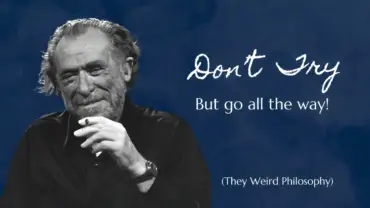
What if your friend, who’s obsessed with the BMW M5, worked his ass off to get his dream car?
Did like a million jobs, bought more lottery tickets than you can count, even tried a bunch of businesses, all just to get it.
Then finally, he strolls into the BMW showroom, looks at the car, and goes:
“Nah, I don’t want to buy this car anymore.”
What would you do? Stand there, mouth wide open, wondering if he accidentally bonked his head on the way in?
Well, don’t be too shocked.
Turns out, he might just be one of those deep readers of Charles Bukowski.
If that name means nothing to you, let me break it down: a legendary poet, novelist, and short story writer who basically made a career out of glorifying the ✨art of not giving a damn✨. Yep, that guy. Classic.
Because here’s the thing about Bukowski fans: they don’t chase dreams like normal people. Nope. They work their butts off, get what they want, and then look at it like it’s some kind of cosmic joke.
Why? Because the moment you finally get that shiny trophy, it suddenly feels about as exciting as watching paint dry.
Mind you, that’s all according to Charles Bukowski. So, don’t hit me, please! 😏
So, like this one, Bukowski’s life is full of weird theories, sarcastic statements, and beer. But which one stands out as the weirdest and most controversial? That’s what we’re here to talk about today. But to really get it, we need to walk through his life and struggles first.
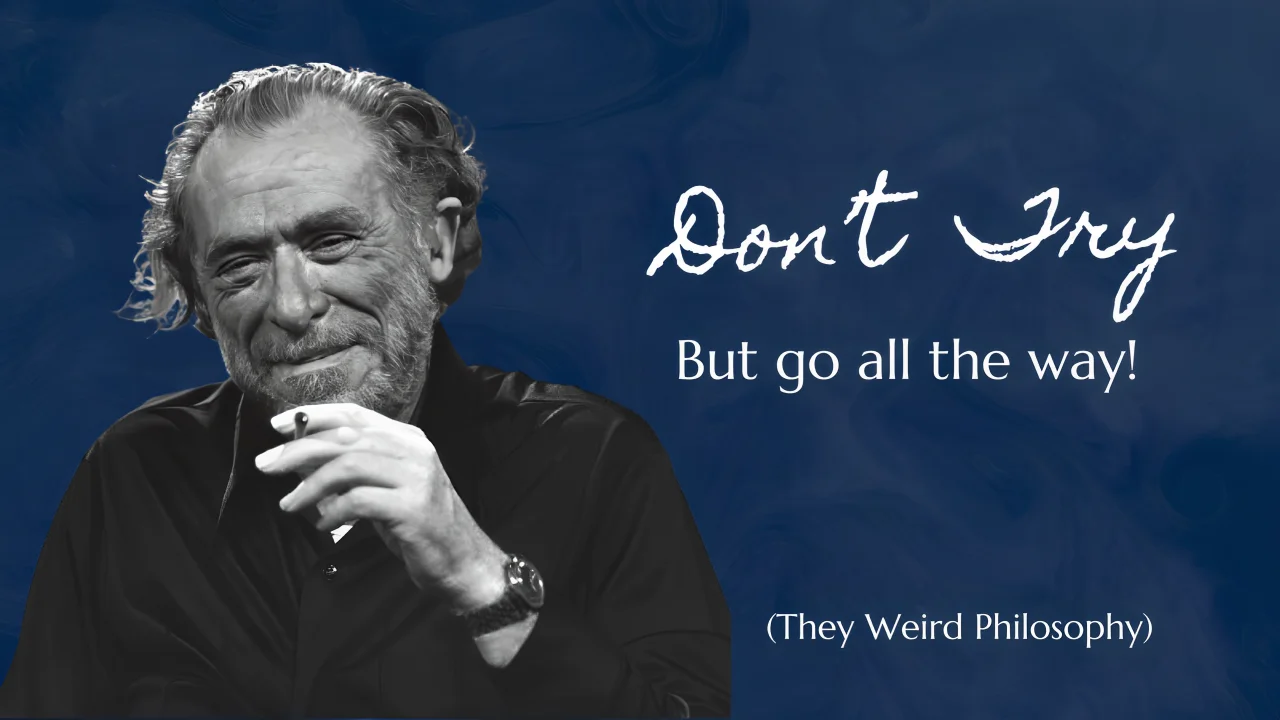
“A Crude Poet” — Life of Charles Bukowski
Well, in today’s world, if you know Charles Bukowski, it’s probably as a famously sarcastic and somewhat DGAF artist.
Back in his prime, people used to call him “a crude poet” — and yes, they had their reasons.
Bukowski’s unfiltered, potent, and extremely straightforward work was a nightmare for the average American sensibility. And the best part? Bukowski was never anything but super proud of that. He couldn’t care less about being politically and socially correct, marketable, or even likeable.
While others were busy polishing their reputations, Bukowski was out there writing about broken bar stools, cheap wine, raw sex, and the kind of existential dread most people try to cover with small talk.
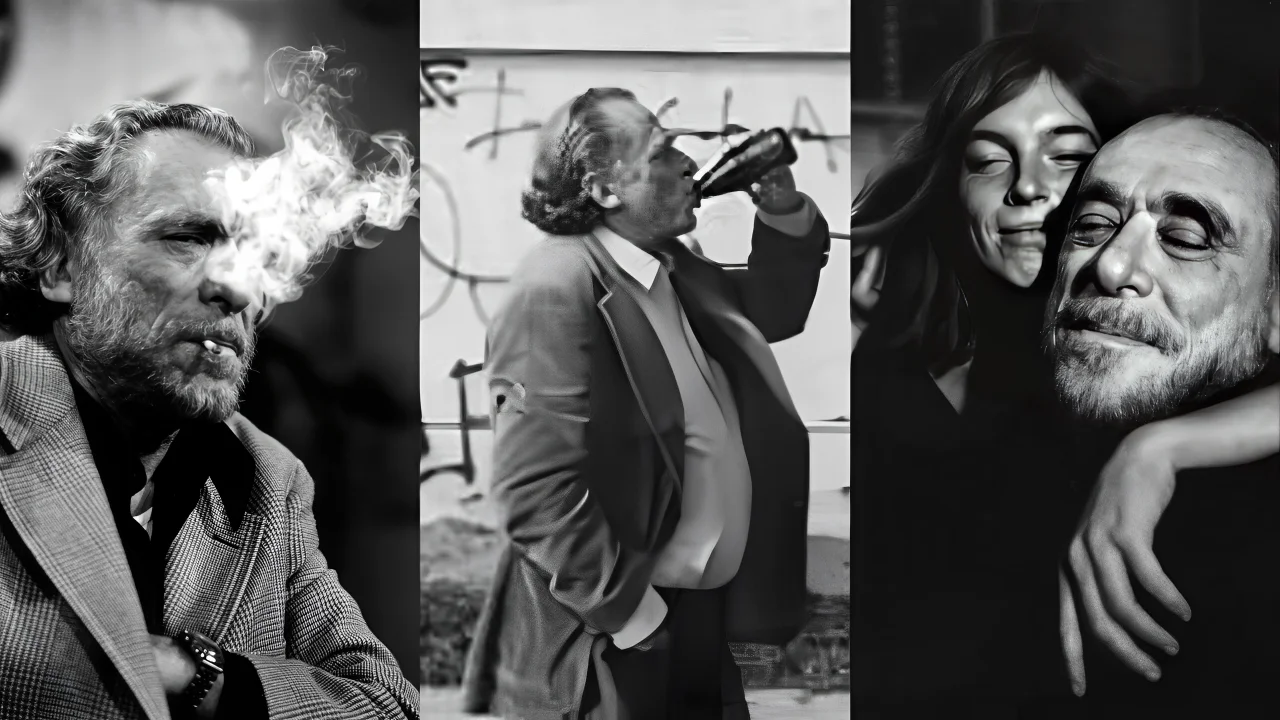
Sounds extra? Right? But Bukowski has his reasons to be that way, and today we love and know him because of that…
The Early Life of Charles Bukowski
Bukowski was born in Germany in 1920, then dragged over to America with his family in 1923, just in time to live out the American nightmare.
His childhood? Let’s just say it was the kind of trauma that makes therapists rich. Beaten regularly by his father starting at age 6, sadly, Bukowski didn’t exactly get a warm welcome into the world. Add in the fact that he was a German immigrant with a thick accent and hand-me-down clothes, the other bastard kids treated him like walking garbage.
As if that wasn’t enough, teenage Bukowski got hit with a brutal case of acne that didn’t just ruin his yearbook photos, but it practically took over his face like a hostile invasion. The result? A kid drowning in abuse, loneliness, and self-loathing.
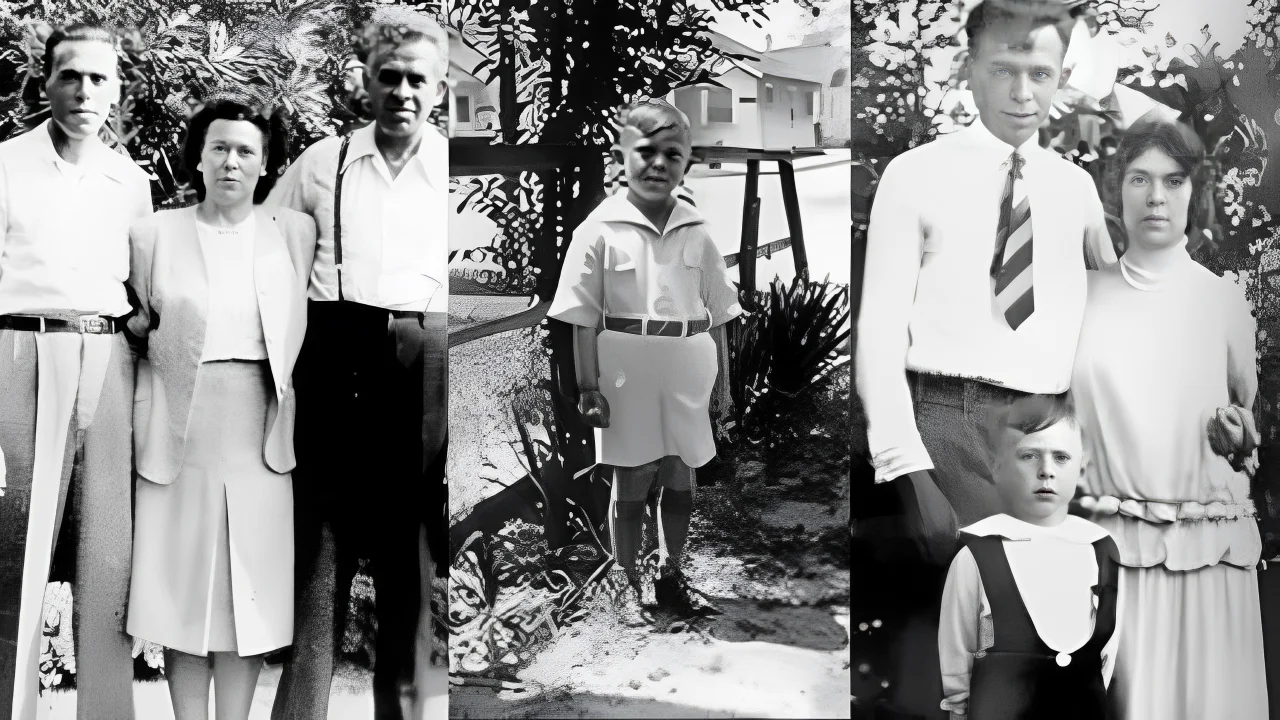
But here’s the twist: instead of breaking him, all that chaos just sharpened his pen. It gave him the perfect cocktail of rage, insight, and brutal honesty he’d later pour into every damn thing he wrote.
Later in life, during one of those rare interviews where Bukowski actually opened up, he said that his father was his greatest literary teacher. Not because he knew about writing, but because he taught Bukowski the true meaning of pain, a pain without reason!
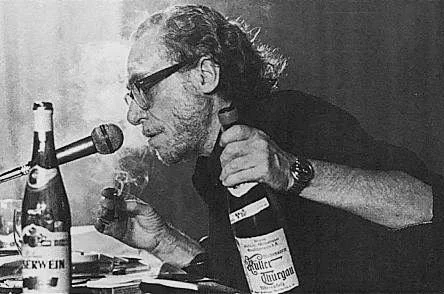
The Journey of Becoming a Writer
In his 20s, after two years of college, which, let’s be honest, probably felt like two years too many! Bukowski dropped out and decided to become a writer. You know, the glamorous kind with no money, no audience, and a typewriter full of rejection slips.
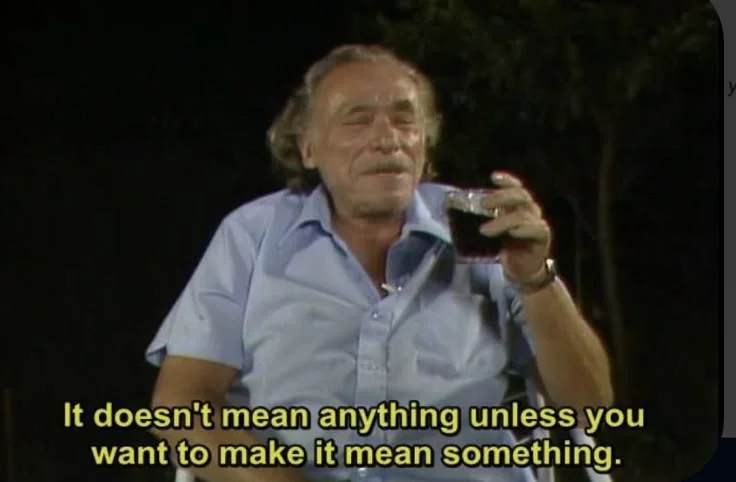
He spent years bouncing around the U.S., doing every miserable short-term, blue-collar job you can imagine, loading trucks, washing dishes, while cranking out hundreds of short stories. Out of all that blood, sweat, and ink? Just a couple got published. And those? Yeah, nobody read them.
Eventually, even Bukowski said, “screw this,” and gave up writing altogether. The publishing world didn’t want him, and honestly, he didn’t seem to want it either. So he clocked in, shut up, and lived the working-man life for a while.
The Life-Changing Moment in Charles’ Life
Fast forward to 1955, Bukowski is 35 and suddenly bleeding out from a brutal ulcer. Nearly dies. And what does our guy do after cheating death? He quits the bullshit and picks the pen back up to give us some kick-ass literature.
But life? Still a relentless bastard. He gets a few things published, gets ignored, and — irony doing its thing — he ends up crawling back to the post office. In 1958, he clocks in again. This time it sticks. Nearly 12 years as a mail carrier, then a clerk. But he doesn’t stop writing.
Every. Damn. Day.
Drained, fed up, writing in the cracks of a soul-sucking job. Underground mags, scattered readers, no fame, no payday, but the words kept coming. Then 1969, John Martin from Black Sparrow Press threw him a lifeline: a $100 monthly stipend to write full-time. Bukowski takes the deal, flips off the post office, and walks.
And then? He sits down and hammers out Post Office in three freaking weeks. A middle finger to the job that nearly killed him. The book that started it all.
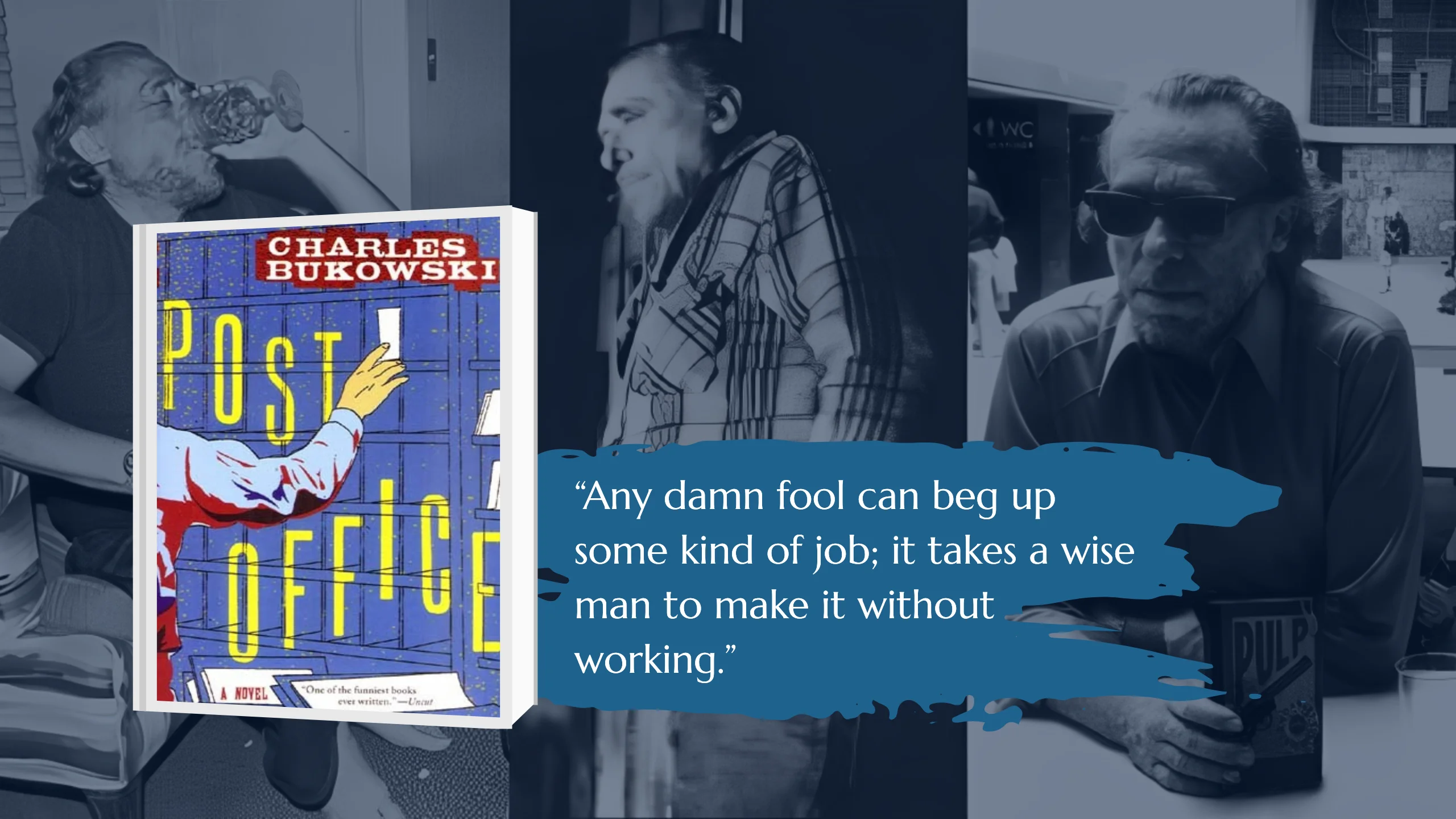
Faced everything but never gave up! Why? Because he wasn’t chasing fame and BookTok readers. He was just trying not to choke on all the words still stuck in his gut.
Like someone we know, 👀 remember? Yep, Mr. Franz Kafka.
Bukowski and Kafka had way more in common than you’d expect, not just in life, but in writing too.
Read it here: Similarities between Franz Kafka and Charles Bukowski.
The Era of Little Recognition
Of course, we all know how Bukowski’s story ended. He’s literally being talked about right now. A writer people still quote, debate, and post moody Instagram captions about, decades after he checked out. One of the greats? Yeah, somehow, the guy who drank like a sailor and cursed like a trucker made it into that club.
But here’s the kicker: Bukowski didn’t become “successful” until his 50s. Yep, after years of slaving away at the post office and writing like a man possessed, someone finally said, “Hey, let’s pay this guy to do what he’s already doing for free.”
So, while everyone else was retiring, Bukowski was just getting started.
It looked like the end — but it was just the beginning.
The Ideology of Charles Bukowski about Writing and Art
So, imagine a person made it this far with many ups and downs, what should their thoughts be toward their passion? What would they advise the young dreamers?
Well… I don’t think you’re prepared.
In a letter to his friend and fellow writer William Packard, Bukowski let it rip:
“Too many writers write for the wrong reasons. They want to get famous or they want to get rich or they want to get laid by the girls with the bluebells in their hair… When everything works best, it’s not because you chose writing, but because writing chose you… It’s when there’s no hope but that.”
That letter hits because it proves that Bukowski never let go of writing, no matter how much it beat the crap out of him.
He didn’t water it down to make it pretty. He didn’t dress it up for publishers. And he didn’t fake it for fame.
He just wrote. Over and over. Through rejection, through pain, through whatever crappy job he was stuck in at the time. No drama. No deep branding strategy. No “writing schedules.”
Just raw, bloody honesty on paper, the only thing he knew how to do. And the only thing he kept doing, until it finally stuck.
SO YOU’RE TELLING ME ALL THIS MAN DID WAS TRY????? RIGHT???? SO, HE WOULD SUGGEST THE EXACT SAME THING TO YOUNG PEOPLE??????? RIGHT???????
The Weird Philosophy of Charles Bukowski
You read all this, man spends decades getting his face kicked in by life, keeps writing anyway, finally “makes it”…
So naturally, you’d assume he’d say:
“Just keep trying, kids. Don’t give up. Hustle harder.”
Right?
Nah. Not even close.
Yes, you read that right.
The same guy who spent 50 years bleeding words onto pages, gulped entire factory of beer with grief, poverty, and god-awful jobs — had “Don’t Try” carved onto his freaking tombstone.
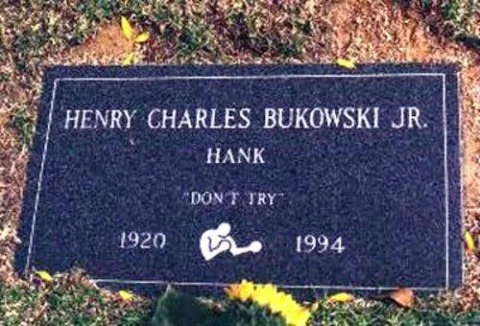
But here is another twist: The same man who tattooed “Don’t Try” into literary history also wrote one of the most intense, soul-punching poems ever called “Go All The Way.”
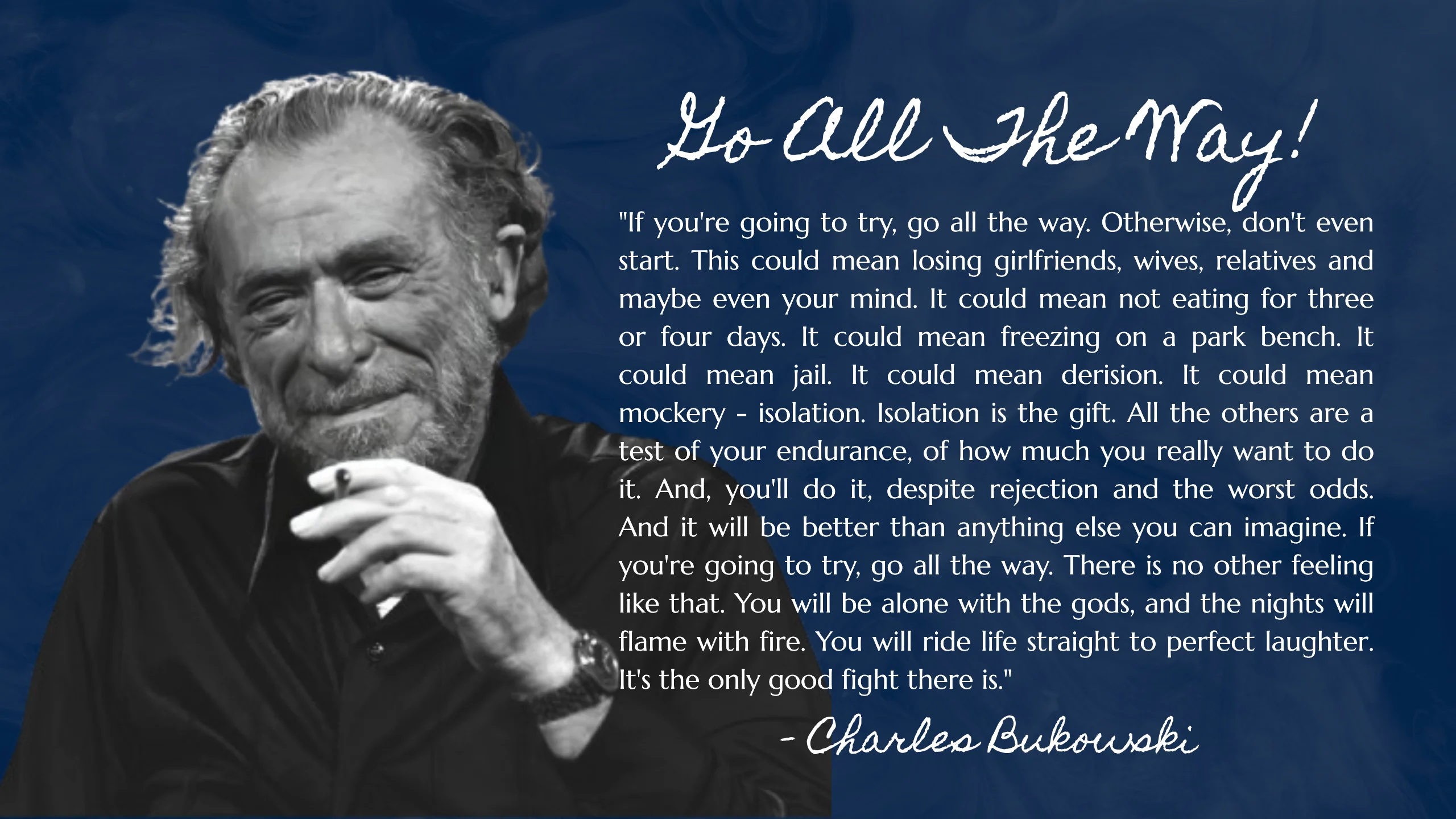
Confused? Good. That’s exactly the point.
Bukowski didn’t hate effort, he hated fake effort.
He didn’t say “don’t care,” he said “don’t care about the crap that doesn’t matter.”
In “Go All The Way,” he basically screams from the page:
“If you’re going to try, go all the way. Otherwise, don’t even start.”
For Charles, writing and art were never a career path or a money-making machine. He simply saw art and writing as tools to save lives and somehow explain life. He explicitly saved himself from drowning further into the deep suffering and sorrow he was already in. Even though he never got to live the glamorous life of a celebrated artist, he still managed to enjoy and live through art with his unstoppable soul. Although he could have faked it—even just a little—to gain the fame and recognition other artists were receiving at the time, Bukowski saw that as a meaningless activity. For him, faking art was never real art.
Write to Write, Not to Tell You Wrote It
In the same letter to Packerd, Charles wrote further:
“We work too hard. We try too hard. Don’t try. Don’t work. It’s there. Looking right at us, aching to kick out of the closed womb.”
Bukowski wasn’t telling us to be lazy — he was calling out the trying to try. The forcing.
If you have to convince yourself to care, maybe you don’t. If you have to push yourself to want it, maybe it’s not yours to begin with.
Creativity — real, raw creativity — comes best when it’s honest. Natural. Undiluted.
Not pushed through a filter of ego or expectations. Not over-edited to impress.
Maybe that’s part of what Bukowski meant.
Now, to be fair, no one truly knows what Bukowski meant. Not entirely! And this isn’t some preachy take on how to find purpose, or passion, or whatever else we spend our lives chasing.
Because that shit is messy. It’s complex.
No two stories — or brains — are the same.
But maybe, just maybe — Bukowski would say this:
If the process drains you and the outcome doesn’t move you, don’t try. But if not doing it feels worse than every rejection, every failure, every drop of effort you’ll pour in. If it pulls itself out of you, even when the world gives nothing back. Then go. And “if you’re going to try, go all the way.
— Charles Bukowski
